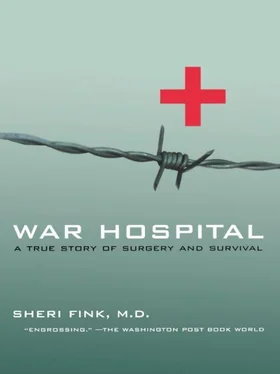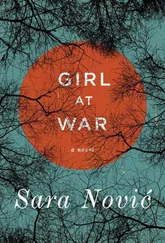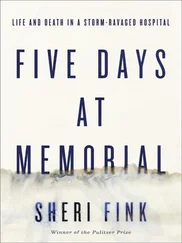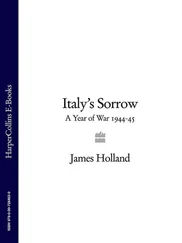He had a disappointing three months. The government strictly prohibited him from treating patients or improving the curative programs he found inadequate, and Eric grew angry and disillusioned. He discharged his fury in a letter to MSF headquarters in Brussels, but after finishing his mission he readied himself to go out again. He wanted to help people in need. He had learned that aid work wasn’t perfect, but he still believed in MSF, and MSF, because it valued strong opinions and new ideas, still believed in him.
The hot tropical sun still fresh on his skin, he awoke one morning in November 1991 to a call from MSF, this time to go to Yugoslavia. “For a few weeks,” the voice on the phone said. “Can you leave immediately?”
The next morning at MSF’s Brussels headquarters, Eric was briefed on his mission. He knew almost nothing about Yugoslavia, a disintegrating, post-Communist Eastern European country. After World War II, the Partisan hero Josip Broz “Tito” had gathered six Balkan republics together into the Yugoslav Federation: Serbia, Croatia, Bosnia-Herzegovina, Slovenia, Macedonia, and Montenegro. The ethno-religious makeup of each republic was different, but this “Land of the South Slavs” was mainly populated by closely related Slavic peoples who had converted at various points in the history of empires to Orthodox Christianity (Serbs, Montenegrins, and Macedonians), Catholicism (Croats and Slovenians), and Islam (Bosnian Muslims), along with significant populations of ethnic Albanians, Hungarians, Jews, and others.
Tito tolerated no divisiveness between the groups, which had fought bitterly, but also had traditions of peaceful coexistence. Some believed this served to sew up a dirty wound—it left dangerous emotions festering within hearts and in families, infecting new generations at dinner tables, rather than allowing the grievances to be aired and cleared in the larger society. Others believed that covering up the past was the best way to move forward in peace for groups of people so geographically intermixed that they obviously had to coexist. For a long while it worked. The younger generations, especially city residents, ignored the past and stopped caring about what ethnicity or religion they were supposed to be.
Tito died in 1980 without leaving a successor, and the fairly prosperous country backslid into the worldwide recession. Serb intellectuals, voicing sentiments forbidden during Tito’s rule, began complaining that Serbs, the most numerous group in Yugoslavia, lacked power commensurate with their numbers and were in some areas “endangered.”
A Serb politician, Slobodan Milošević, found that appealing to Serb nationalist sentiment won him support and the leadership of the Serbian Communist Party. Through various tactics, he came to control half of the votes in the Yugoslav federal government, where the leaders of the six republics and two autonomous provinces now shared power. Multi-party elections in other republics brought nationalists of other ethnicities to office who opposed Serbia’s domination. After holding referendums, the republics of Croatia and Slovenia declared independence from Yugoslavia on June 25, 1991. Slovenia quickly resisted intimidation by the Yugoslav army, but Croatia had a significant Serb minority who feared they would lose power and suffer violence in a newly independent nationalist Croatian state. The Serbs’ fears were fanned by both Croat provocations and a media blitz of nationalist Serb propaganda. Croatia disintegrated into war between pro-independence Croatian forces and a combined force of Yugoslav National Army and Serb irregular units.
“We have no dog in this fight,” said the U.S. Secretary of State, and, for the first time since World War II, the United States stepped back and left responsibility for an issue with significant security implications to the European Community, which failed to stop the fighting. In September, the United Nations imposed an arms embargo on all of Yugoslav territory. This served to favor the Serb-dominated Yugoslav army—the sixth largest in Europe—which had stockpiles of weapons and its own strong armaments industry.
Eric’s mission was to evacuate war-injured patients who were huddled in the basement of a hospital in a Croatian city, Vukovar, that was being held under siege by the Yugoslav National Army and Serb irregulars. Several weeks earlier, in mid-October, an MSF representative based in the Croatian capital, Zagreb, had struck a deal between Yugoslav and Croatian rebel forces for evacuation of Vukovar’s injured patients. On the way out of Vukovar with the first group of 109 critically injured patients, the twelve-vehicle MSF convoy fell under a shower of mortar fire. Later a land mine exploded, maiming two MSF nurses, on a road the convoy had been directed to take by the Yugoslav National Army. MSF’s leaders had unknowingly participated in a plan that linked the organization’s access to the hospital with the safe passage of Yugoslav forces from an army barracks in Croatia. The incident shocked the MSF workers, who had never before experienced being targets. And being lied to.
More than fifty other wounded patients were still waiting to be evacuated from the bombarded hospital, which had no running water or stable source of electricity. Eric was being dispatched to the capital of Yugoslavia—Belgrade, Serbia. Far from the area of conflict, he’d be working to convince high-ranking Yugoslav Army officers to allow MSF to complete the evacuation.
He arrived two days later and took time to familiarize himself with the warm, autumnal capital, noting the proud and handsome features of its residents. He strolled along wide boulevards flanked by ugly, socialist-style buildings and turned onto small sylvan streets lined with old square houses capped by terra-cotta tiles. He visited the city’s central park where the Sava and Danube rivers meet, overlooked by an ancient fortress, Kalemegdan, where Serbs were trapped by marauding Turks, a perpetual reminder of hundreds of years of hated Ottoman rule and the inspiration for epic poems about Serbians’ mythic suffering. The next day he awoke early and rolled out of Belgrade in an old Lada sedan, heading northwest toward Vukovar. The Russian antique belonged to the only driver Eric’s translator could find whose hunger for money surpassed his fear of driving into an artillery barrage. Confident, inexperienced, and armed only with good intentions, Eric fully expected to enter the besieged city to assess the medical situation. But, after more than fifty miles and several police checkpoints, Serb soldiers stopped the car at a sign marked “ ratna zona .” War zone.
The soldiers refused to let them proceed.
“Impossible. Far too dangerous,” they said, which struck Eric as ironic because, after all, the danger came from the soldiers themselves. He stepped out of his car and listened to the boom of heavy guns, feeling each detonation shake the ground and echo in his belly.
Having failed to break the siege lines, he visited a few nearby health clinics and rode back to Belgrade in the dark. That night he couldn’t sleep. He sat in an old armchair by the window of his room, facing the moonlit garden. He closed his eyes and thought of Vukovar, thoughts he would record in a chronicle of his experiences:
What if chance had led me to be born there? Would I have had the wherewithal to escape in time? I’m not sure. I can easily imagine having chosen to remain, having refused to believe that everything was going to hell. Now, I, too, would be a prisoner, trapped under bombardment with thousands of others.
Damn it, he would get them out. He’d do everything in his power to get them out, like a fireman carrying people out of a burning house. This, he decided, would be his mission. His only mission. MSF’s mission, too. This was a cause that would be worth any trouble, any difficulty he’d have to bear.
Читать дальше












